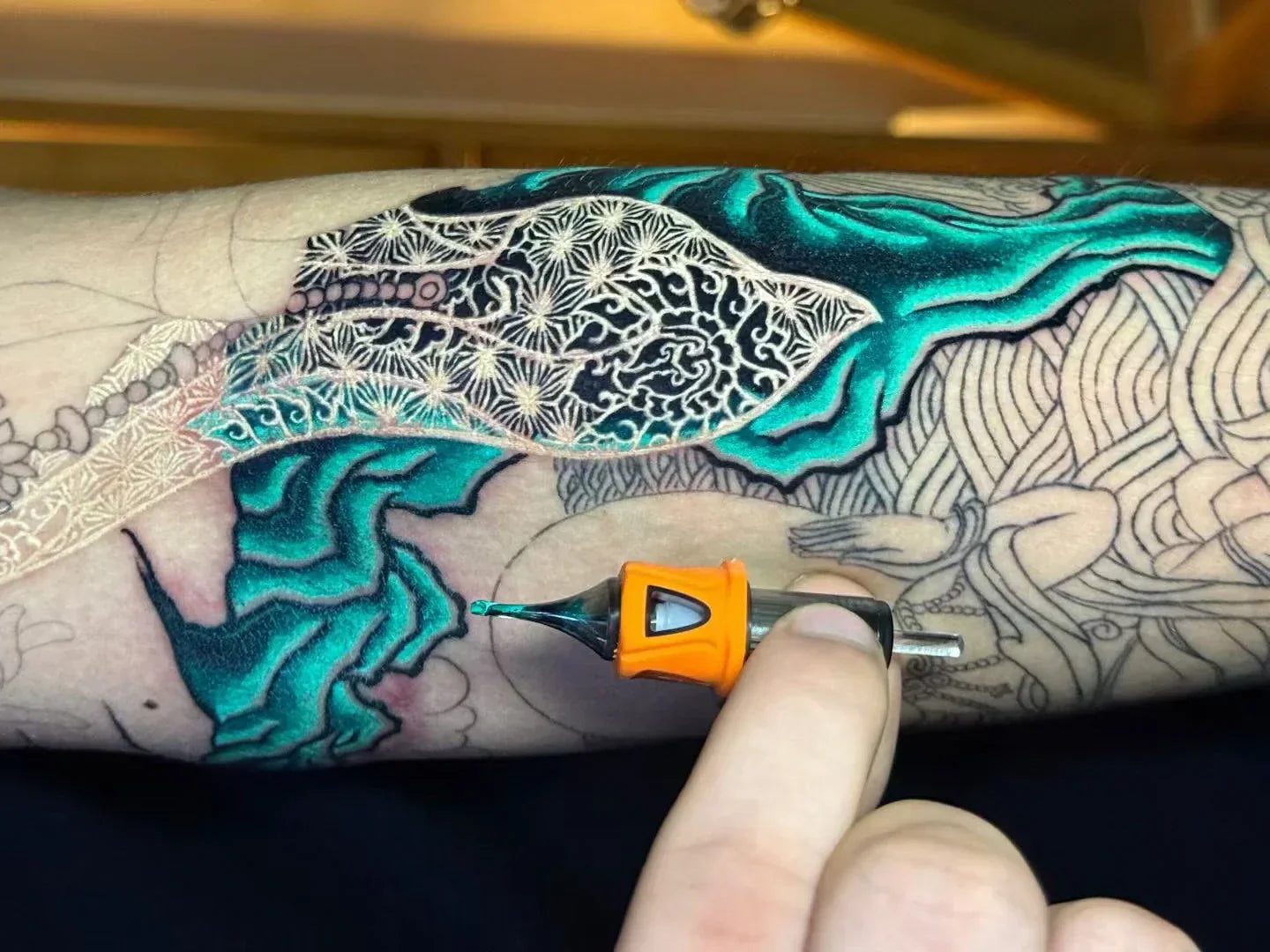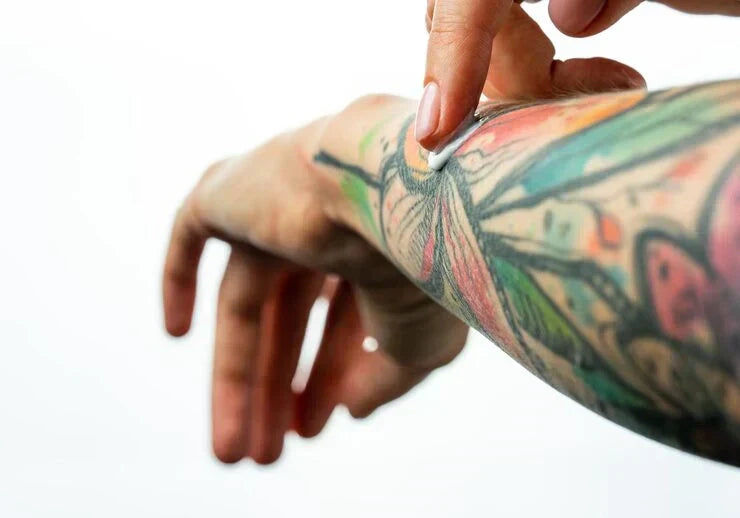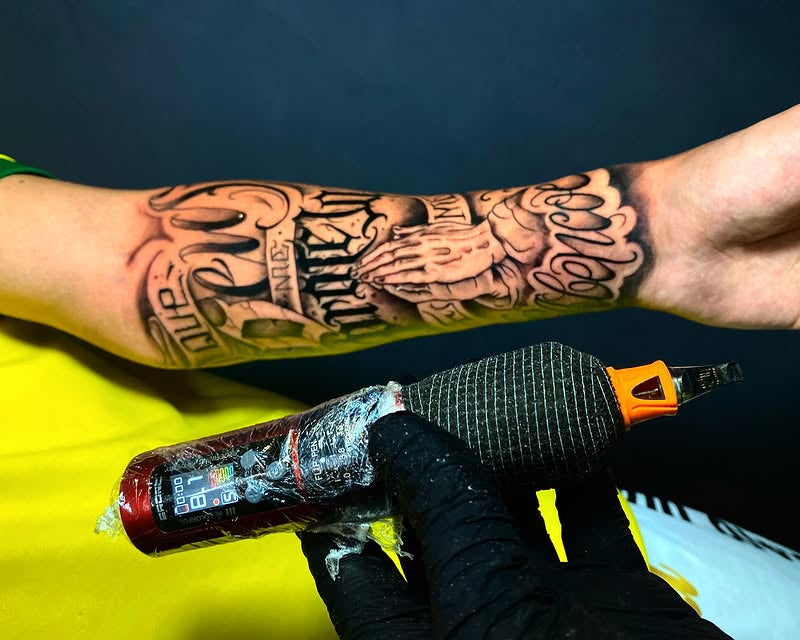
How to Become a Tattoo Artist in the USA: 7 Things to Know Before Starting Your Career

Pursuing a career as a tattoo artist in the USA is an exciting blend of creativity and hard work. You’ll need to master artistic skills, follow health rules, and use the right tools.
1. Master the Art and Design Basics
Before you pick up a tattoo machine, you need a solid artistic base. It’s crucial.
· Honing Basic Drawing and Creative Skills: Tattooing means creating lasting art on skin. So, you must get good at sketching, shading, and understanding colors. Practice on paper or digital screens to sharpen your abilities before you work on people.
· Learning Body Structure for Tattoo Placement: Knowing how muscles and bones move under skin is vital. Why? The body’s curves can twist designs if you’re not careful. Study anatomy to make your art fit perfectly.
· Creating a Strong Tattoo Portfolio: Your portfolio is like your job application. Include clear photos of original drawings or practice tattoos on fake skin or fruit. This proves your skill and imagination. For practice, quality materials matter. Products like BIGWASP's Tattoo Studio Practice Skins offer a realistic, thick surface to help you improve before tattooing clients.

2. Find a Tattoo Apprenticeship in the USA
Learning from pros gives you real-world experience. It’s a game-changer.
· Why Apprenticeships Matter for Tattoo Training: You can’t master tattooing from videos alone. An apprenticeship lets you watch experts, learn how to talk to clients, and practice safely under guidance.
· How to Reach Out to Tattoo Shops and Artists: First, find trusted local shops with licensed artists. Then, visit them with your portfolio. Dress neatly and show you’re eager to learn, not just earn cash.
· Tasks During an Apprenticeship: At first, you’ll clean, set up workstations, and observe. Later, you’ll practice under supervision. Above all, always follow hygiene and safety rules.
3. Understand US Licensing and Certification Requirements
Rules differ across states, but you must follow them to work legally.
· Different State Licensing Rules: Each state has its own requirements. Some ask for written tests; others focus on training hours. Check your state’s health department for details.
· Required Safety and Health Training: Most states demand courses on preventing diseases, like bloodborne pathogens training. These ensure you know how to keep clients safe.
· Getting Local Health Permits: Besides, you’ll likely need permits from local health officials to tattoo or open a shop.
4. Learn Health, Safety, and Sterilization Standards
Keeping clients safe is your top job. No exceptions.
· Keeping Your Workspace Clean: Use strong disinfectants to clean surfaces before and after each tattoo. What’s more, cover equipment with sterile barriers like plastic wraps to avoid germs.
· Using Disposable Needles and Tools: Always use new needles and toss them into sharps containers right after. Reusing needles? That’s illegal and risky.
· Avoiding Germ Spread During Tattooing: Wear gloves the whole time. Also, don’t touch unclean surfaces while working. This stops bacteria from reaching clients’ skin.
5. Get the Right Tattoo Equipment and Supplies
Good tools make your work safer and better. Choose wisely.
· Must-Have Tools for New Tattoo Artists: A beginner’s kit needs a machine (rotary or coil), power supply, cords or batteries, inks, disposable grips, gloves, stencil paper, and cleaning supplies. High-quality cartridge needles are key too.
· Tattoo Machines, Cartridges, Inks, and Power Supplies: For starters, an affordable yet reliable machine like the 2025 New v77 Professional Tattoo Pen, priced at $88.00 with fast global shipping, works great. For cartridges, try the Big wasp Energy Rubber Cartridge Needles - Round Liner, costing $19.90, known for dependability.
· Picking Safe, High-Quality Supplies: Always buy from trusted brands like BIGWASP that focus on hygiene. For example, apprentices moving to pro work might love a wireless machine. The BRONC X2 Adjustable Wireless Pen, now $418.00 (down from $498), offers comfort and flexibility for different techniques.

6. Build Your Tattoo Artist Career and Client Base
Once you’re licensed and skilled, it’s time to grow your audience.
· Showing Off Your Work Online: Social media, like Instagram, is perfect for sharing your tattoos. Use hashtags to reach more people naturally.
· Connecting at Tattoo Events: Attend tattoo conventions to meet other artists and vendors, like BIGWASP reps. You might even find mentors for advice or teamwork.
· Offering Great Customer Service: Treat clients with care. Be on time, keep things clean, and talk clearly about designs. Follow up after sessions to check healing. This builds trust and loyal fans.
7. Keep Learning and Developing Your Unique Style
Top artists never stop growing. Keep pushing yourself.
· Trying Different Tattoo Styles: Experiment with styles like classic American, realism, or dotwork. Find what fits your vibe and attracts clients.
· Joining Workshops and Learning More: Workshops sharpen your skills and teach you about new tools, like wireless machines or eco-friendly inks that are trending now.
· Creating Your Own Brand: Your brand is your unique style, logo, and online presence. It’s what makes clients pick you over others.
BIGWASP: Your Partner in Tattoo Artistry
At BIGWASP, we aim to supply top-notch tattoo machines and tools to the industry. We’re a dependable brand that supports artists at every stage. Whether you’re new or experienced, our products—like starter pens, the advanced BRONC X2, or reliable BIGWASP cartridge needles—are practical, stylish, and built to last. Plus, we offer global shipping to keep you equipped.
FAQs:
Q1: Do I need a license to become a tattoo artist in the USA?
A: Yes, most states require a license. You’ll usually need to complete health and safety training, like a bloodborne pathogens course, and apply through your local health department.
Q2: What’s the average income of a tattoo artist in the USA?
A: Earnings depend on experience, location, and reputation. Generally, they range from $30,000 to $80,000 or more per year.
Q3: Is buying expensive equipment necessary when starting out?
A: No. Beginners can use affordable, professional tools like the 2025 New v77 Professional Tattoo Pen ($88). These let you gain experience without breaking the bank.



Leave a comment
This site is protected by hCaptcha and the hCaptcha Privacy Policy and Terms of Service apply.